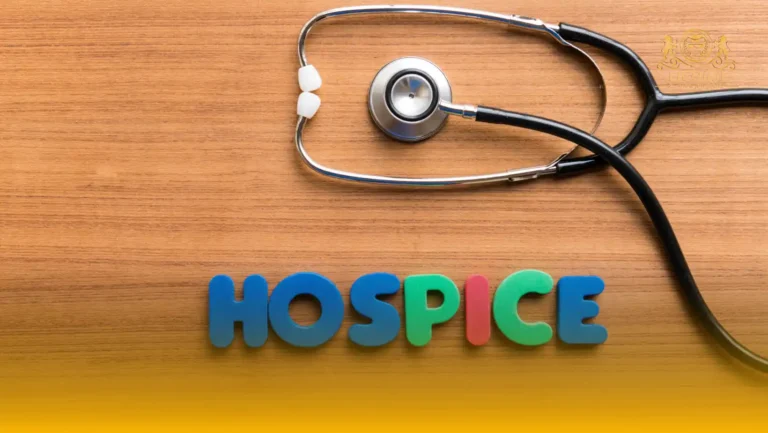The LICQual Level 3 Diploma in Healthcare Informatics is a specialized qualification designed for healthcare professionals seeking to advance their knowledge and skills in managing healthcare information systems, data analytics, and digital health technologies. This programme equips learners with the expertise to improve healthcare delivery, optimize clinical decision-making, and support evidence-based practice through effective use of informatics and data management.
This qualification is not intended for fresh candidates. It is specifically aimed at experienced professionals who wish to enhance their career prospects, broaden their knowledge, and strengthen their Continuing Professional Development (CPD). Learners will explore key areas such as electronic health records, healthcare data security, information governance, data analytics, and informatics-driven decision-making, with a focus on applying theoretical knowledge to practical healthcare environments.
Centres delivering this qualification are required to ensure learners have access to competent and qualified staff with extensive experience in healthcare informatics and data management. Centres must also provide comprehensive study materials, practical tools, case studies, and a supportive learning environment to facilitate effective learning and ensure learner success.
Upon completion, learners will be prepared to manage healthcare information systems efficiently, ensure data integrity and security, and contribute to informed decision-making within healthcare organizations. The LICQual Level 3 Diploma in Healthcare Informatics equips learners with essential analytical, technical, and management skills, enabling them to take on senior roles in healthcare informatics, data management, and digital health leadership, significantly enhancing their professional credibility and career progression opportunities.
Course Overview
Qualification Title
LICQual Level 3 Diploma in Healthcare Informatics
Total Units
6
Total Credits
60
GLH
240
Qualification #
LICQ2200736
Qualification Specification
To enroll in the LICQual Level 3 Diploma in Healthcare Informatics, applicants must meet the following criteria:
|
Qualification# |
Unit Title |
Credits |
GLH |
|---|---|---|---|
|
LICQ2200736-1 |
Introduction to Healthcare Informatics |
10 |
40 |
|
LICQ2200736-2 |
Electronic Health Records (EHR) Management |
10 |
40 |
|
LICQ2200736-3 |
Healthcare Data Analytics and Decision Support |
10 |
40 |
|
LICQ2200736-4 |
Information Governance and Data Security |
10 |
40 |
|
LICQ2200736-5 |
Digital Health Technologies and Innovation |
10 |
40 |
|
LICQ2200736-6 |
Applied Healthcare Informatics Projects |
10 |
40 |
By the end of this course, learners will be able to:
Unit 1: Introduction to Healthcare Informatics
By the end of this unit, learners will be able to:
- Explain the core principles and concepts of healthcare informatics.
- Analyse the role of information management in improving healthcare delivery.
- Evaluate ethical and professional considerations in handling healthcare data.
- Apply informatics concepts to practical healthcare scenarios.
Unit 2: Electronic Health Records (EHR) Management
By the end of this unit, learners will be able to:
- Demonstrate understanding of EHR structure, functions, and benefits.
- Maintain accuracy, confidentiality, and security of patient records.
- Apply protocols for data entry, storage, retrieval, and management.
- Ensure compliance with healthcare regulations and information governance standards.
Unit 3: Healthcare Data Analytics and Decision Support
By the end of this unit, learners will be able to:
- Collect, analyse, and interpret healthcare data effectively.
- Use data analytics to inform clinical and administrative decision-making.
- Visualise and communicate healthcare metrics for stakeholders.
- Apply predictive analytics to improve patient outcomes and operational efficiency.
Unit 4: Information Governance and Data Security
By the end of this unit, learners will be able to:
- Explain principles of data protection, privacy, and governance.
- Assess risks and implement mitigation strategies for healthcare data systems.
- Apply security protocols to prevent data breaches and loss.
- Ensure compliance with legal and regulatory requirements in healthcare information management.
Unit 5: Digital Health Technologies and Innovation
By the end of this unit, learners will be able to:
- Identify emerging digital health tools and technologies.
- Evaluate the adoption and implementation of telehealth and remote monitoring systems.
- Analyse the impact of digital health innovations on patient care and service delivery.
- Recommend strategies for integrating technology to improve healthcare outcomes.
Unit 6: Applied Healthcare Informatics Projects
By the end of this unit, learners will be able to:
- Analyse real-world healthcare informatics challenges.
- Plan, implement, and manage informatics projects effectively.
- Evaluate project outcomes and recommend system improvements.
- Apply best practices to optimise healthcare data management and digital solutions.
The LICQual Level 3 Diploma in Healthcare Informatics is designed for experienced healthcare professionals who want to advance their expertise in managing healthcare information, digital systems, and data-driven decision-making. This qualification is not intended for fresh candidates and is ideal for those seeking to enhance their career prospects, broaden their knowledge, and strengthen their Continuing Professional Development (CPD).
This course is suitable for:
- Healthcare IT and informatics professionals aiming to optimize information systems and digital processes.
- Clinical managers and administrators responsible for managing patient data and healthcare technologies.
- Data analysts and information officers working within healthcare organizations who wish to apply advanced data management techniques.
- Healthcare professionals committed to CPD who want to develop leadership, analytical, and technical skills in informatics.
- Digital health and telehealth coordinators seeking to implement innovative technologies for patient care improvement.
- Quality assurance and compliance officers aiming to ensure data integrity, security, and regulatory compliance.
Enrolling in this course enables learners to gain practical, analytical, and technical skills to manage healthcare information systems effectively, support data-driven decision-making, and lead digital health initiatives, preparing them for senior roles in healthcare informatics, data management, and digital healthcare leadership.
To deliver the LICQual Level 3 Diploma in Healthcare Informatics, centres must meet specific standards to ensure high-quality training, learner success, and compliance with international educational standards. Key requirements include:
- Qualified and Competent Staff – Trainers, assessors, and internal quality assurers must hold relevant qualifications and professional experience in healthcare informatics, data management, and digital health systems.
- Access to Learning Resources – Centres must provide learners with up-to-date study materials, case studies, practical tools, and digital resources to support effective learning and skill development.
- Appropriate Facilities – Training environments, whether physical or online, should include secure IT systems, multimedia equipment, and collaborative spaces for workshops, seminars, and project-based learning.
- Assessment and Quality Assurance Systems – Centres must implement robust assessment procedures, internal verification, and quality assurance processes to ensure consistent and credible learner outcomes.
- Learner Support Services – Academic guidance, technical support, and career development resources should be available to support learners throughout the qualification.
- Compliance and Data Security – Centres must follow best practices in information management, data protection, and adherence to relevant healthcare regulations when handling learner information.
- Commitment to CPD and Continuous Improvement – Centres should foster a professional learning environment that encourages continuous improvement, staff development, and learner progression.
By meeting these requirements, centres create an environment that enables learners to develop practical, analytical, and technical skills, preparing them to manage healthcare information systems effectively, support data-driven decision-making, and lead digital health initiatives.
Assessment and Verification
All units within this qualification are subject to internal assessment by the approved centre and external verification by LICQual. The qualification follows a criterion-referenced assessment approach, ensuring that learners meet all specified learning outcomes.
To achieve a ‘Pass’ in any unit, learners must provide valid, sufficient, and authentic evidence demonstrating their attainment of all learning outcomes and compliance with the prescribed assessment criteria. The Assessor is responsible for evaluating the evidence and determining whether the learner has successfully met the required standards.
Assessors must maintain a clear and comprehensive audit trail, documenting the basis for their assessment decisions to ensure transparency, consistency, and compliance with quality assurance requirements.







